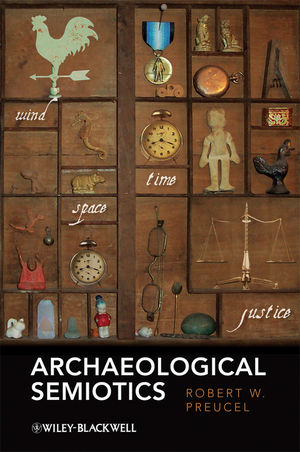Archaeological SemioticsISBN: 978-1-4051-9913-1
Paperback
352 pages
April 2010, Wiley-Blackwell
 This is a Print-on-Demand title. It will be printed specifically to fill your order. Please allow an additional 10-15 days delivery time. The book is not returnable.
|
||||||
Providing an introduction to Saussure and a review of his legacy across structural, symbolic, and cognitive anthropology, Preucel goes on to present the Peircian alternative and highlights its influence on pragmatic anthropology. Of special interest are the discussions of the interrelations of structuralism and processual archaeology, poststructuralism and postprocessual archaeologies, and cognitive science and cognitive archaeology. The author offers two original case studies demonstrating how material culture pragmatically mediates social relations- one focusing on the aftermath of the Pueblo Revolt from 1680-1694 and the other on the New England utopian community of Brook Farm from 1842-1846.
Throughout his analysis, Preucel emphasizes the close links between archaeology and other social sciences. But he also contends that archaeology, by virtue of the powerful ideological character of the past, can open up new spaces for discourse and dialogue about meaning, and, in the process, make a valuable contribution to contemporary semiotics.



